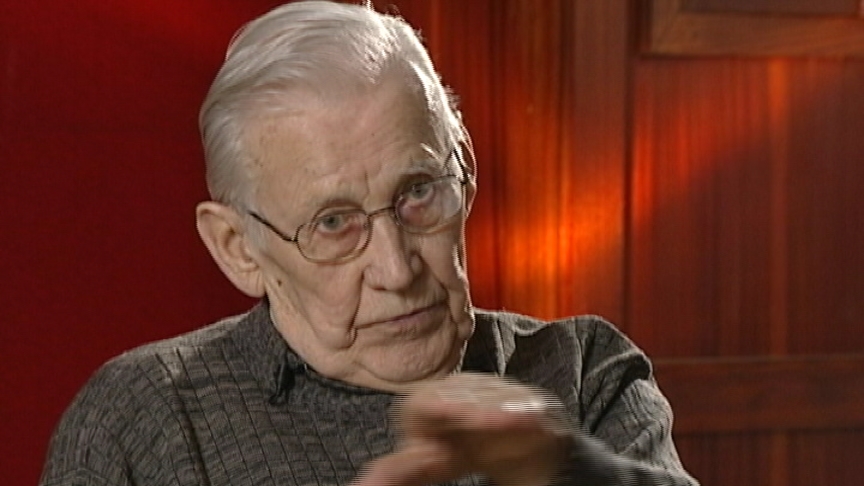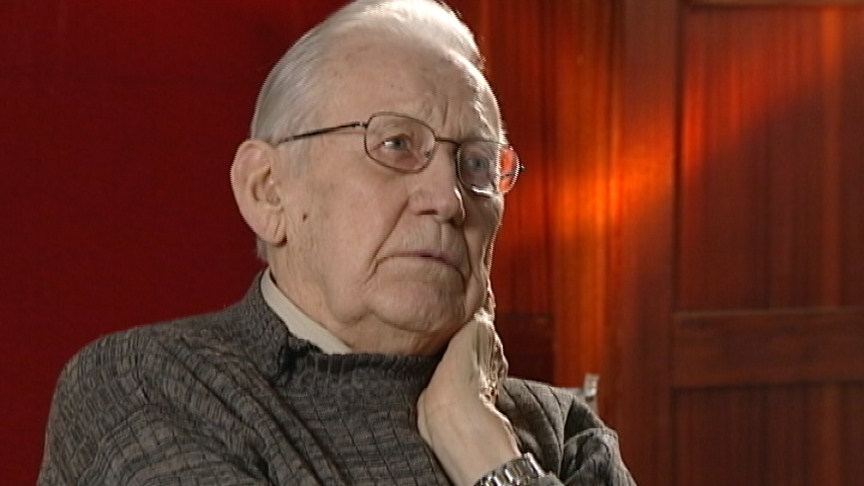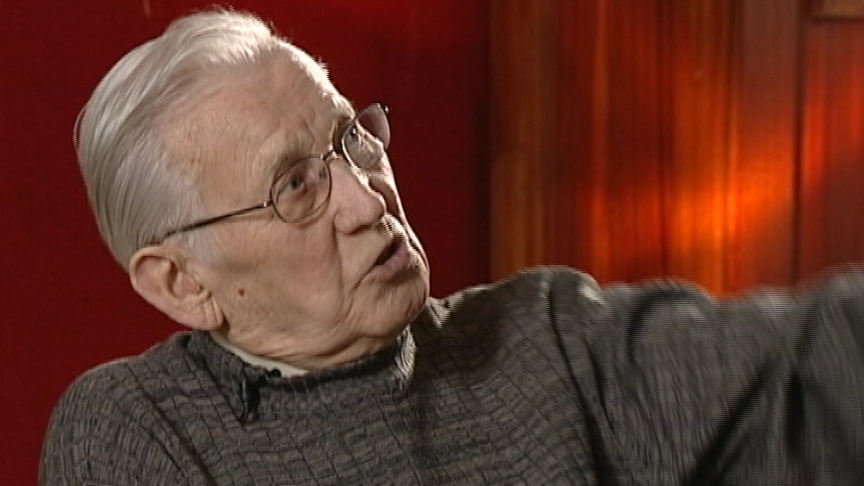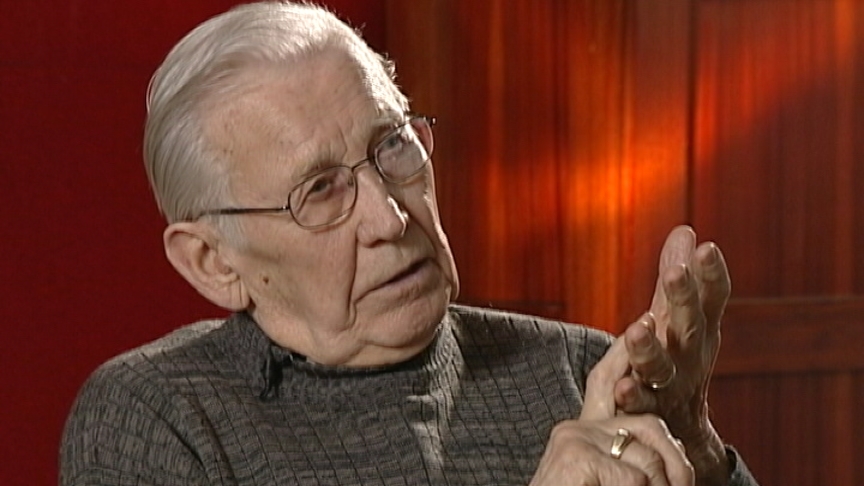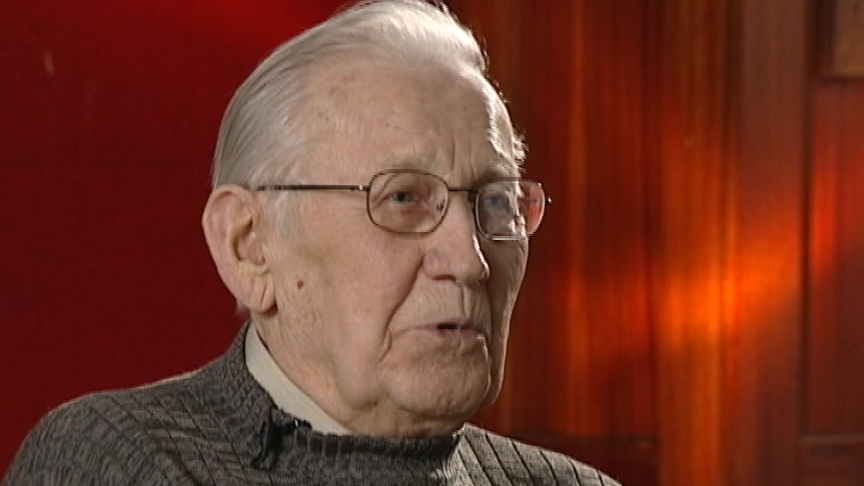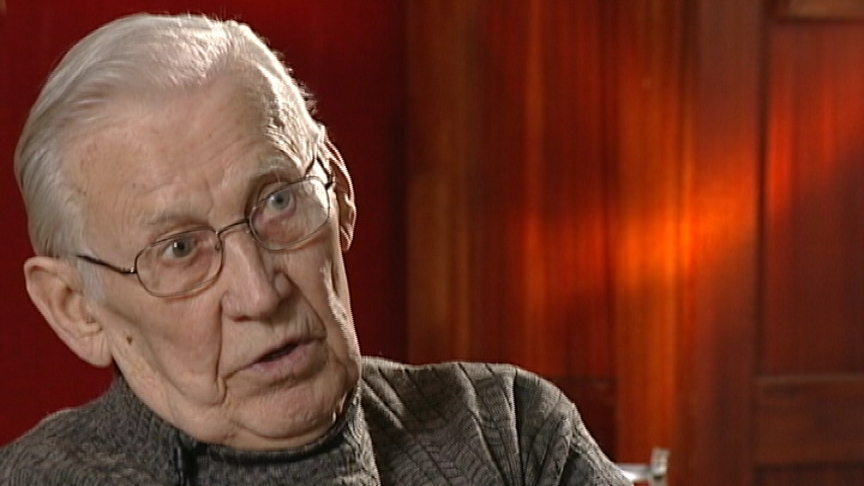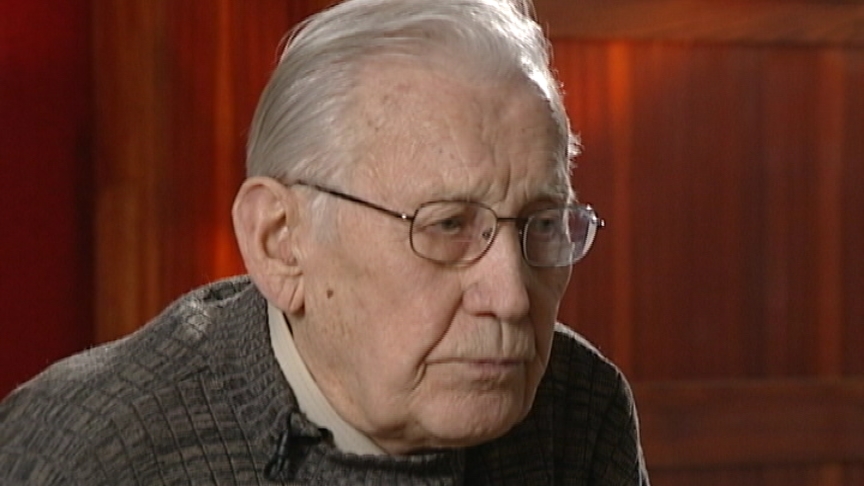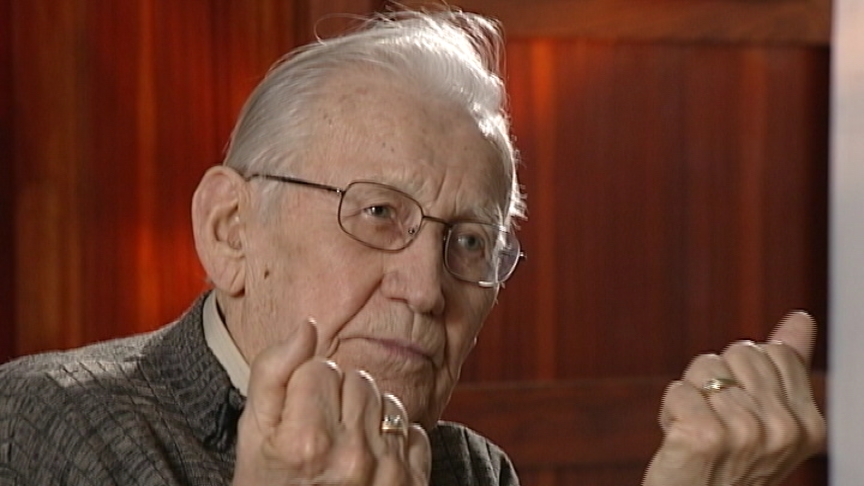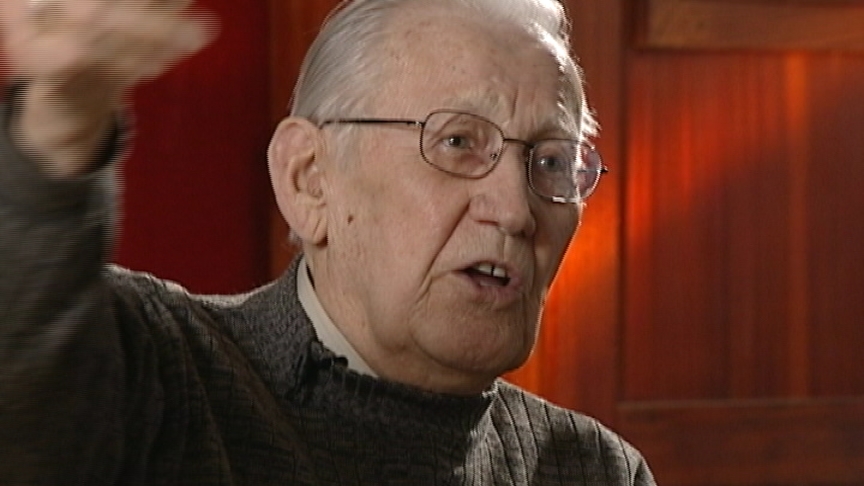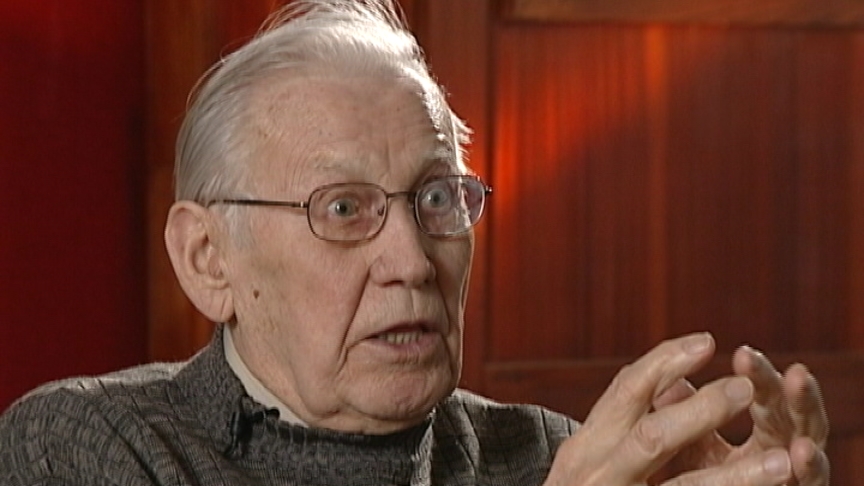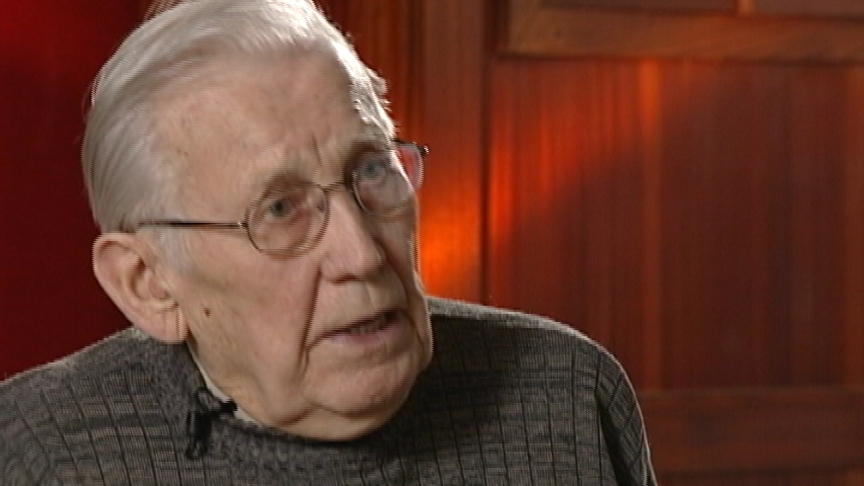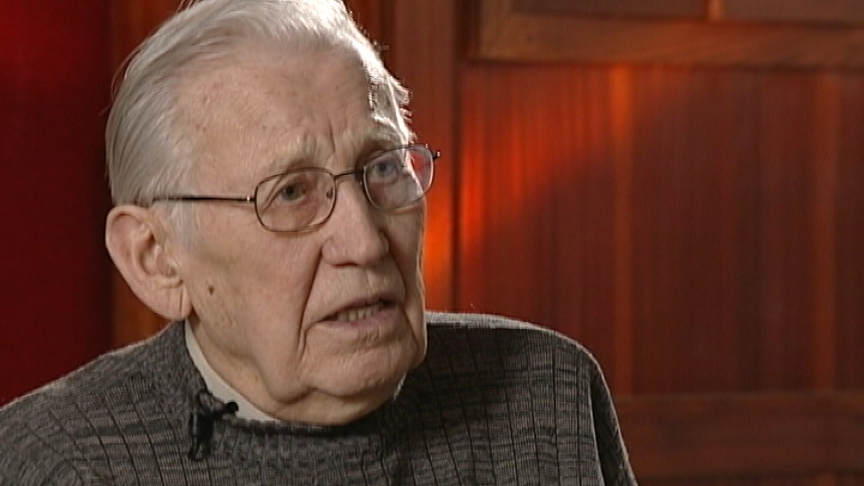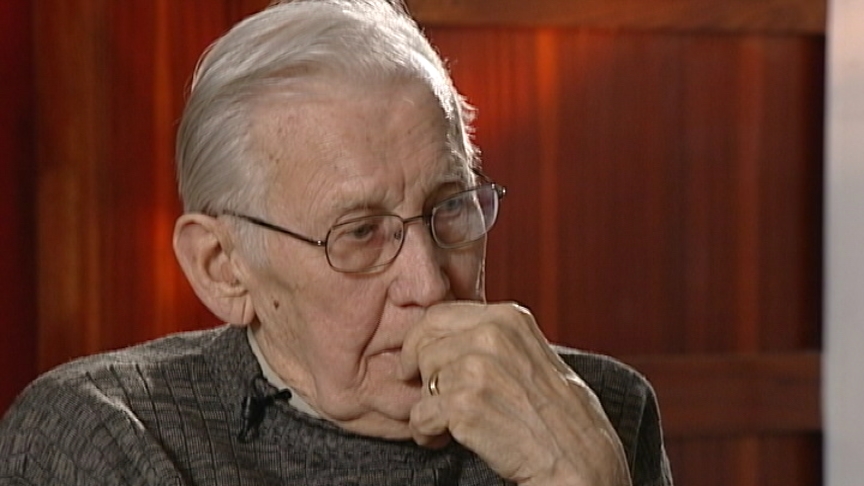There were a lot of tears, a lot of tears. A lot of sobbing, a
lot of tears. You know, after a year's time, you... they
become your family. They become your family and you get, you get
to the point where you, you, you know you have to go back, but at
the same time you hate to leave them, but you know they're free.
You know they're free and life will go on. And, so, then what
you do is you promise one another to stay in touch. And we have.
I must confess that I have stayed in touch with the people who
helped me, all the people who helped me except this one guy who
interrogated me, Cor Fovelard. I tried to get in touch with him
the third time I was back and I wrote to his son. I wrote to him
and I <inaudible>, I spoke to him on the phone the first time I
was back, and he said "I can’t talk to you now," he says, "It's
still very, very... it's a difficult, very, very difficult
for me." He says, "I, I still have it in my heart." His was a
very funny story, at first he was with the, the underground was
divided into three parts: there were those who supplied the food,
those who blew up bridges and those who killed undesirable
Nazis, you know. And now, at first he was, because he
interrogated me and he supplied the food and so on, but he was
caught one day by the Gestapo for some unknown reason and he was
tortured. He was kept overnight and tortured, they used a
gunsight on his face, you know, and they said, "Who are the names
of these people? Where'd you get all these ration cards?" and so
on and so forth. He wouldn't tell, but that night the
underground went in and freed him. And when they freed him, he
was so bitter that he decided to join the third, the third group,
and he, the rest of the war, he spent rubbing out Germans, eh.
Germans that were undesirable. Now, mind you, a lot of people
died on account of them because they had reprisals, eh. As soon
as you killed somebody, it was a major or somebody of that nature
or a Gestapo leader, you killed him, they would have reprisals.
They'd kill 10, or 15, or 20 prisoners. So, he said, "You
know, it, it still weighs heavily upon me. I can't see
anybody right now." But he says, "The next time you're
here," he says, "we'll get together," he says, "and I'll be
in better shape to talk to you." So, the next time I went down, I
called, I wrote to his, to him, and his son wrote back and said
that he had died the year before. So, I was never able to see him
He was the only one that I couldn't, I didn't, see. I saw
everyone, I saw the rest of them.



